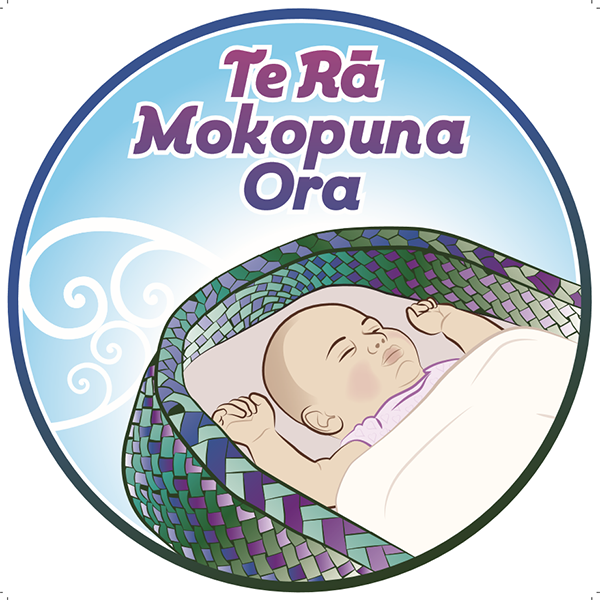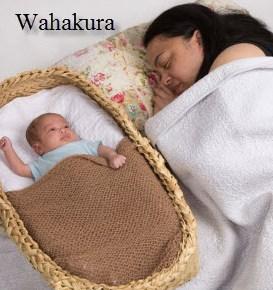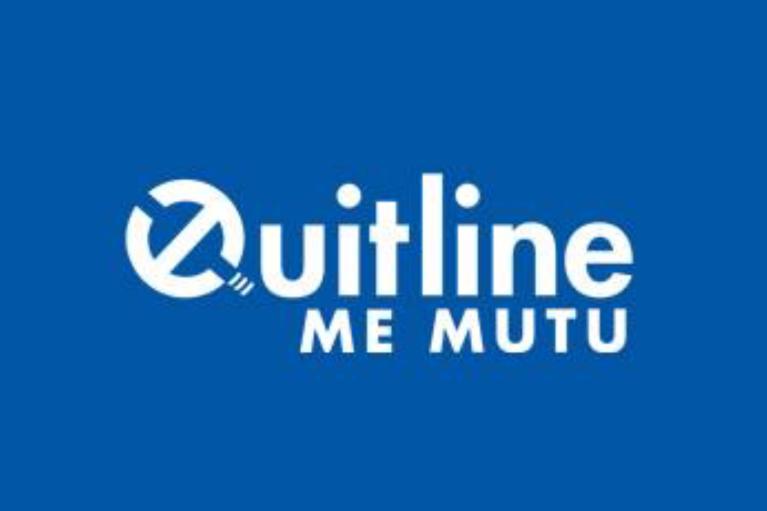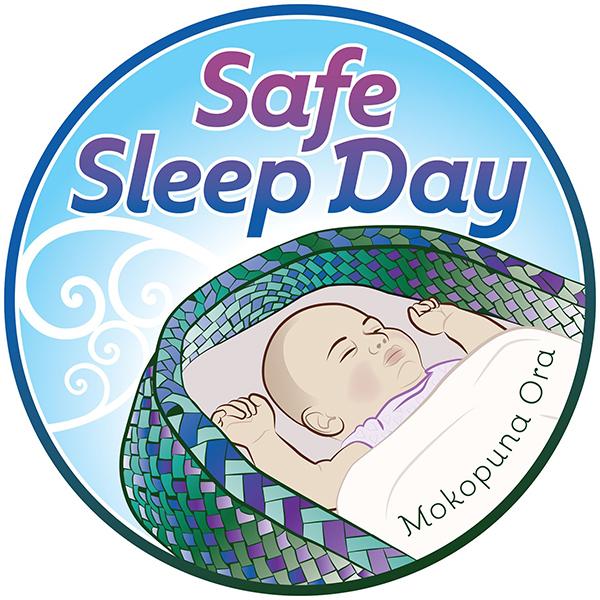A video with safe sleeping tips for pēpi (babies).
Source: Hāpai Te Hauora
Key points about safe sleep for your baby

P - place baby in their own baby bed in the same room as you
A video about safe sleep for pēpi.
Source: Northland District Health Board
Give your baby their own bed (such as a cot, bassinet, wahakura or Pēpi-Pod®).
Place your baby in their own bed for every sleep, including when visiting friends and whānau.
Have your baby's bed in the same room as you for at least the first 6 months.
Have a firm, flat mattress that fits your baby's bed well and has no gaps between the frame and the mattress.
Have nothing in the bed that might cover your baby's face - no pillows, toys, loose blankets or bumper pads.
If you choose to sleep in bed with your baby, put them in their own baby bed beside you - for example, a Pēpi-pod® or wahakura. This will help reduce the risk of your baby suffocating while they are asleep.
If you'd like find out more about a Pēpi-pod® or wahakura, ask your midwife.


It is never safe to put your baby to sleep in an adult bed, on a couch or on a chair.
The person looking after your baby needs to be sober and drug-free.
E - eliminate smoking in pregnancy and protect baby with a smoke-free family or whānau, whare (home) and waka (car)
A video about safe sleep for pēpi.
Source: Northland District Health Board
Protect your baby with a smoke-free family or whānau, whare (home) and waka (car). If you want to give up smoking or vaping, contact Quitline or talk with your health professional.

If you want to give up smoking or vaping call Quitline free on 0800 778 778. Quitline can provide free support and advice to help you or someone in your whānau quit smoking. Visit their website for more information.
P - position baby flat on their back to sleep - face clear of bedding
A video about safe sleep for pēpi.
Source: Northland District Health Board
Make sure your baby always sleeps on their back with their face clear of bedding.
When your baby sleeps on their back, they can better keep their airway clear and open.
E - encourage and support exclusive breastfeeding and gentle handling of baby
A video about safe sleep for pēpi.
Source: Northland District Health Board
Your breastmilk makes a big difference to your baby's health.
Breastmilk helps protect your baby from some illnesses, as a baby and later in their life.
Ask your midwife if you'd like some more support with your breastfeeding.
Make every sleep a safe sleep when out and about with your baby
Car seats or capsules protect your baby when travelling in the car. Don't use them as a cot or bassinet. Car seats and capsules are not safe for your baby to sleep in when you are at home or at your destination.
If you are out somewhere, make sure your baby has a safe place to sleep. Take your wahakura, Pēpi-pod®, portacot or bassinet with you, and use it on a flat surface.
Financial help to get your baby their own bed
If you need financial help so that baby can have their own baby bed, talk to your midwife or nurse. You may be able to get some help from Work and Income to buy a bed. For more information call Work and Income on 0800 559 009.
Financial Help For Raising A Family
How you can protect your baby's head shape
When your baby is sleeping, turn their head so that sometimes they face left and sometimes they face right.
Tummy time, while your baby is awake, will help protect their head shape and make their arms strong.
- back for sleep
- front for play
- upright for cuddles and hugs
Positional Head Flattening In Babies

Keeping baby safe in bed - watch a video
Safe sleeping tips for pēpi.
Source: Ministry of Health
transcribeTranscript
Title: Your Child: Safe Sleep. Episode 13 of 15.
Title: Raukura & Aaron’s Whānau
[Shots of Raukura and Aaron’s home.]
Carmen (voice-over): Parents can make sure that every sleep for baby is a safe sleep by having good knowledge and sharing it with their whanau, or anybody else that's going to look after their baby.
[Interview with Carmen.]
Title: Carmen Timu-Parata, Well Child Tamariki Ora Nurse
Carmen: Kia ora koutou. Ko Carmen Timu-Parata. Nō Ngāti Kahungunu. I'm a Well Child / Tamariki Ora Nurse. We're at the home of Raukura and Aaron, and we've also come to see baby Rehua for their Well Child visit and to focus on safe sleep environments.
[Interview with Raukura.]
Raukura: My name's Raukura Maxwell. I'm twenty-eight years old, and just had my first son, and his name is Rehua Rex Randall.
[Shot of Rehua in bed.]
Title: Rehua, 9 weeks old
Raukura (voice-over): Rehua has his own cot in our room, next to our bed.
[Interview with Carmen.]
Carmen: We recommend that baby is in the same room as their parents, up to at least six months of age.
[Interview with Raukura.]
Raukura: We thought it was safer to put him in his own cot next to us. One, because it's closer to us so we can hear him, and two, so he's not sleeping with us.
Raukura (voice-over): Rehua has his own cot in our room, next to our bed.
[Interview with Carmen.]
Carmen: When you are looking for a good sleep space for baby, there might be options – for example a bassinet, maybe a cot. Other options may be a wahakura or a Pēpi-Pod.
[Raukura places a mattress in a cot.]
Raukura (voice-over): When me and my partner were talking about where to sleep baby, and what to sleep baby in, we read in our Tamariki Ora book about the best kind of mattress to have. So having a firm mattress that fit the bassinet or the cot, that was really important to us. So we measured up and got new mattresses for both.
[Raukura and Carmen interact with Rehua, who is lying in his cot.]
Carmen (voice-over): It's really important that baby's face is clear of things like extra toys, any bumper pads, pillows, sharp objects or curtain cords.
[Carmen checks the cot.]
Raukura (voice-over): We don't put anything else in the bed but the blanket. We don't use toys or put up mobiles just in case something could fall off and he could swallow it. Even with the bumper, he could suffocate on it. It's just for our peace of mind.
[Raukura demonstrates to Carmen how she puts Rehua to bed.]
Carmen (voice-over): It's really important when baby is sleeping that they're lying on their backs, feet first, at the foot of the bed. Basically, if baby wants to go anywhere or wriggle down, they've got nowhere to go. If you want to go to a party or anything, it's important that you have a safe plan for baby, and that baby has their own safe sleep space, and that whoever is looking after baby, that they're sober when taking care of baby.
[Interview with Carmen.]
Carmen: What we know about breastfeeding is that babies who are breastfed are less likely to die unexpectedly, so it's a really good thing to keep breastfeeding until six months and even beyond that.
[Interview with Raukura.]
Raukura: I chose to breastfeed because it's cheaper and it's free, and it meant that he could get all the colostrum, or what they call "liquid gold".
[Raukura plays with Rehua.]
Carmen (voice-over): For many parents that are getting up for the night feeds, it's really important that you're feeding baby and that you are also placing baby back down in their own bed by themselves, and not in the bed with you. It's really important that wherever baby is the environment is smokefree and they're kept away from any kind of cigarette smoke.
[Interview with Raukura.]
Raukura: My partner and I, we don't smoke, but I have lots of family members who do. So the rule when they walk in our door is, you come in, and if you've had a smoke, wash your hands, wash your face too, and only then can you hold baby. I'm hard on that.
[Raukura wraps Rehua and puts him to bed.]
Carmen (voice-over): One of the most common things to do as a parent or caregiver is to overheat baby by putting lots of clothes on, and that can actually make baby sweat and get quite stressed, so it's important they’re at a comfortable temperature.
Raukura (voice-over): At the moment, it's summer, so it's quite hot in our house. I make sure to just wrap him. We've got a thick wrapping blanket and a thin one. So I put him in a thin one when it's hot at night, and I’ve got a second blanket if I need to.
[Interview with Carmen.]
Carmen: It's really important that every sleep baby has is a safe sleep, and that they actually go back into their own bed by themselves.
Title: Our thanks to the families and health workers who appeared in this video for the Ministry of Health.
Acknowledgements
The information on this page describes the best ways to protect your baby from dying suddenly in their sleep. It aligns with the National SUDI Prevention Programme: Needs Assessment and Care Planning Guide.
Our thanks to Northland District Health Board for the 4 PEPE videos and to the Ministry of Health for the 'Your child: Safe sleep' video.
Our thanks to Change for our Children for the Pēpi-pod® photo.
The 2 logos 'Te Rā Mokopuna' and 'Safe Sleep Day' are reproduced from Hāpai - SUDI Prevention Coordination Service. They promote National Safe Sleep Day 2 December 2022.
